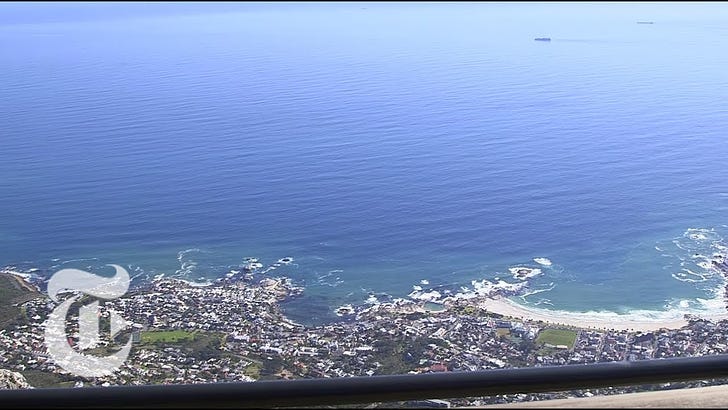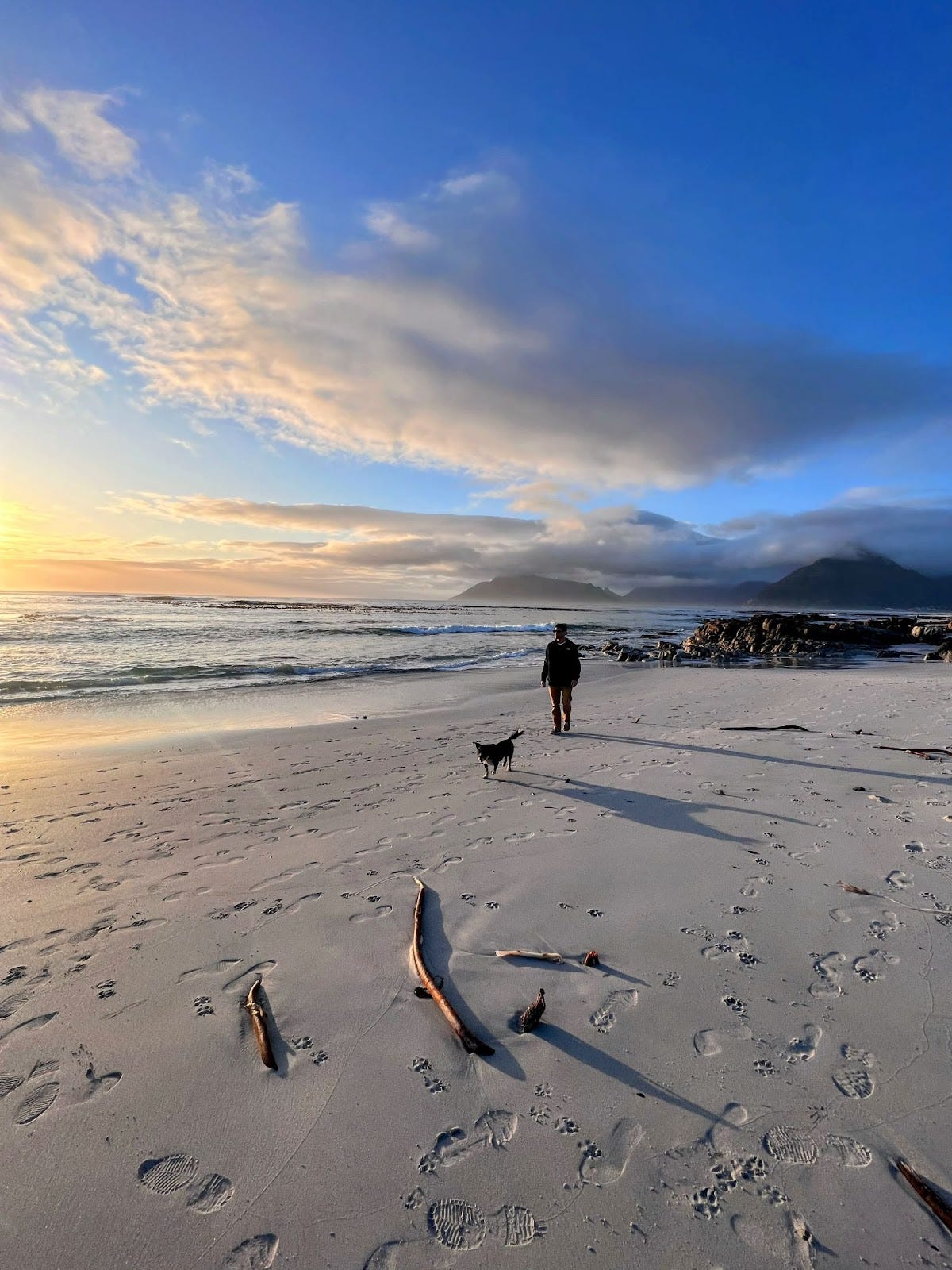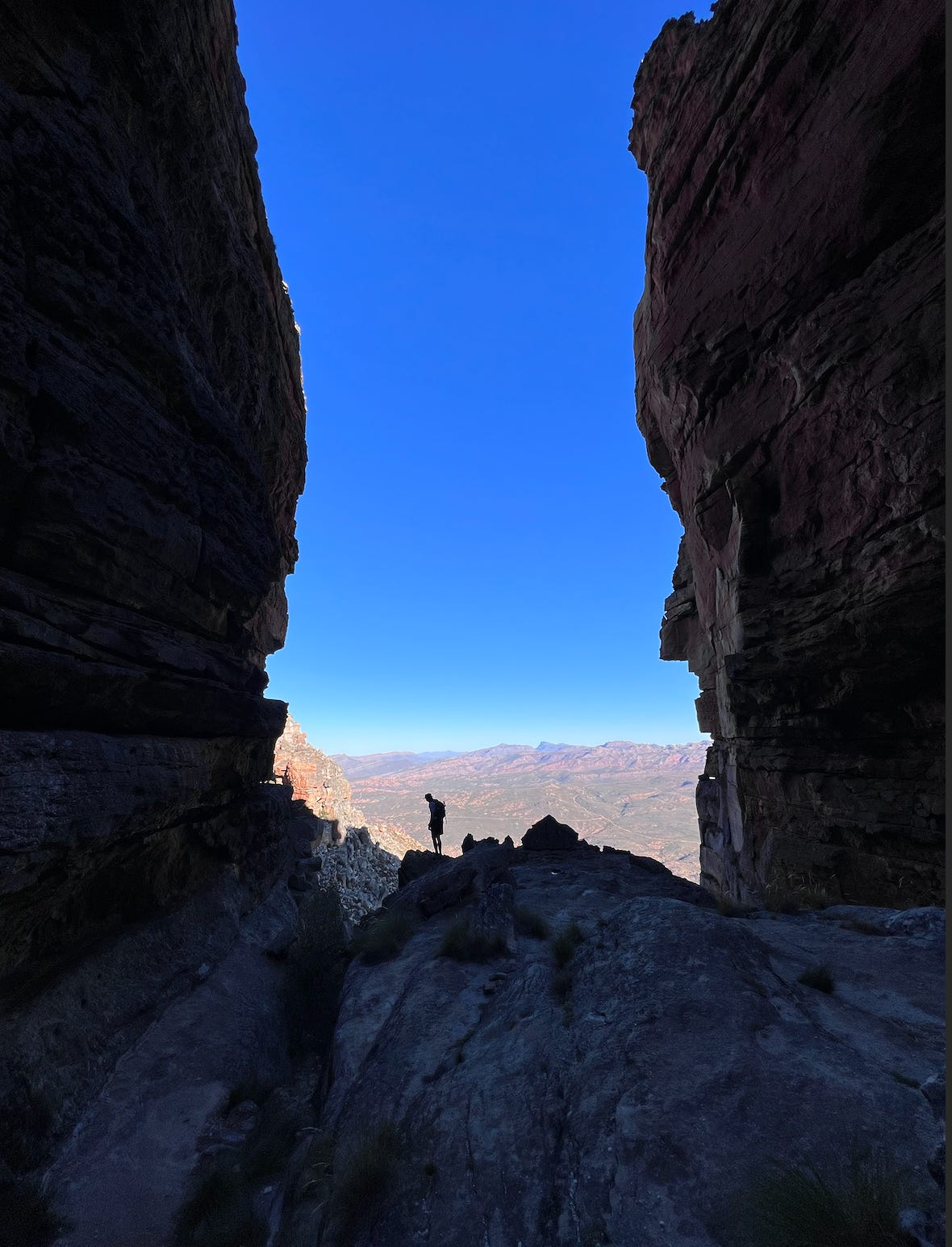Joseph Dana (JD) is a longstanding friend of WITI and a Cape Town-based writer. He formerly edited the opinion pages at The National in Abu Dhabi and served as Monocle's Eastern Mediterranean correspondent and Istanbul bureau chief. Sign up for his newsletter: “Both/And” to read more about Cape Town’s vibrant psychedelic scene - Colin (CJN)
Joseph here. I struggled to find an opening to why Cape Town is interesting. There are too many ways to answer the question. The city’s natural beauty is almost unparalleled (Rio could give Cape Town a run for its money). There are few other places where you can go on a world-class hike through the smallest flora kingdom in the world, have lunch among vines that once produced one of Napoleon’s favorite wines, and finish the day swimming or surfing in crystal clear water with dolphins and orcas. From an outdoor perspective, Cape Town and its surrounding landscape offer a lifetime of exploration and hidden surprises.
Yet, that beauty belies a form of segregation hardwired into the DNA of Cape Town’s urban environment. For all its majestic beauty, Table Mountain sits at the center of this segregation. Below the iconic mountain face, the central business district rolls out to the sea, surrounded by several exclusive suburbs that hug the narrow stretch of land between the Atlantic Ocean and Lion’s Head, the other famous mountain landmark of the city.
Around the backside of Table Mountain, more upmarket suburbs like Constantia dot the mountain’s slopes and valleys. These rolling foothills and forests give way to the Cape Flats, a windswept collection of shanty towns with some of the highest levels of gun violence in the world. Table Mountain sticks out like a giant thumb, separating the haves from the have-nots as if the city occupied two different countries.
NYT Video of 36 hours in Cape Town:
With the opening of new direct flights to the United States since Covid and the South African Rand at an all-time low against the Dollar, Cape Town’s popularity is unavoidable. Throngs of tourists escaping the Northern Hemisphere winter every year barely get a sense of the complexity that exists just under the city's surface. You can easily visit Cape Town and only see the shanty towns on the taxi ride from the airport to the city center.
Cape Town’s summer (December-February) is the high season for tourism, but winter offers spectacular sunsets
Before you start thinking this will be a diatribe using Cape Town as an example of the failure of post-Apartheid South Africa to heal its historical wounds and move forward as an equal society, it’s not one of those pieces. However, South Africa's painful history is part and parcel of what makes Cape Town so interesting. There are efforts to bridge the gaps and dismantle segregation, but they have proven much harder than in other South African cities. Cape Town was the first city in the world to be founded by a multinational corporation (The Dutch East India Company) in 1652. Since then, it has served as a beacon for European colonialism, and all it entails in Africa.
Evidence of human settlement in the Cape Peninsula predates colonialism, extending at least 100,000 years into our past. In the mountain ranges north of the city, you can find ancient rock art from the San and Khoisan tribes. The more time you spend in this part of the world, the more you become attuned to the depth of history it offers. That’s one of the most intriguing aspects of Cape Town beyond its breathtaking beauty and stark politics of inequality. The land has a deep memory that reveals itself in unexpected places if you remember to look for it.
Cape Town is a remarkably insular city. The stereotypical Capetonian is aloof with planning and doesn’t like to venture too far from their little slice of the city. My wife is from Cape Town, and we moved here permanently in 2018. Last year, we moved about 40 minutes south of the city center towards Cape Point (you can read about our baboon neighbors). With two young children and my insatiable surfing addiction, it was an obvious place to be. Yet, many of my wife’s lifelong friends have only visited once or twice. Missioning down to the “deep south,” as it’s known, is described literally as “going to that side of the world.”
The Cederberg mountains outside of Cape Town are like a land that time forgot.
What Cape Town has in natural beauty and dense politics, it lacks in luxury offerings. There are some outstanding hotels and unique restaurants (Ellerman House is a WITI favorite), but don’t expect to find the highest luxury beyond a couple of staple institutions. Come to Cape Town for the history, the fresh air, and the allure of wellness. The city excels in everything from yoga retreats to 100-mile ultra marathons. The global interest in plant medicine and psychedelics is particularly vibrant. If you consider how South Africa’s history is lived here and investigate the city’s evolution in lockstep with colonialism, Cape Town presents a unique window into the complex nature of society worldwide.
Thanks for reading,
Noah (NRB) & Colin (CJN) & Joseph (JD)
—
Thanks for reading,
Noah (NRB) & Colin (CJN)
—
Why is this interesting? is a daily email from Noah Brier & Colin Nagy (and friends!) about interesting things. If you’ve enjoyed this edition, please consider forwarding it to a friend. If you’re reading it for the first time, consider subscribing (it’s free!).






Cape Town is my favorite city in the world and I love the shimmer you suggest. Cape Town is where billionaires go to die because its natural beauty is unbelievable. Your biggest decision is whether to visit the Atlantic Ocean side or the Indian Ocean side. Tough choices. My first look at the Atlantic side was of friends carrying their wind-surfing buddy across the beach (broken leg); the nearest hospital might be 1.5 hours away. The Indian side has always been calmer in my experience, plenty of surfers there, too. (Wondering, Joseph, which side you've chosen?) Joseph's prose dances atop the thin crust of local violence; newcomers should be aware that Cape Town is one of the murder capitols of the world--for every reason. Also, baboons have fangs powerful enough to ward off leopards and lions. They can be too friendly. Which makes the alluring suggestion of psychedelics nearly irresponsible. There are better, safer places for that. You don't need drugs to enhance the experience of Africa, anyway. The people are wonderful and the scenics extraordinary. Cape Town is my favorite city in the world.